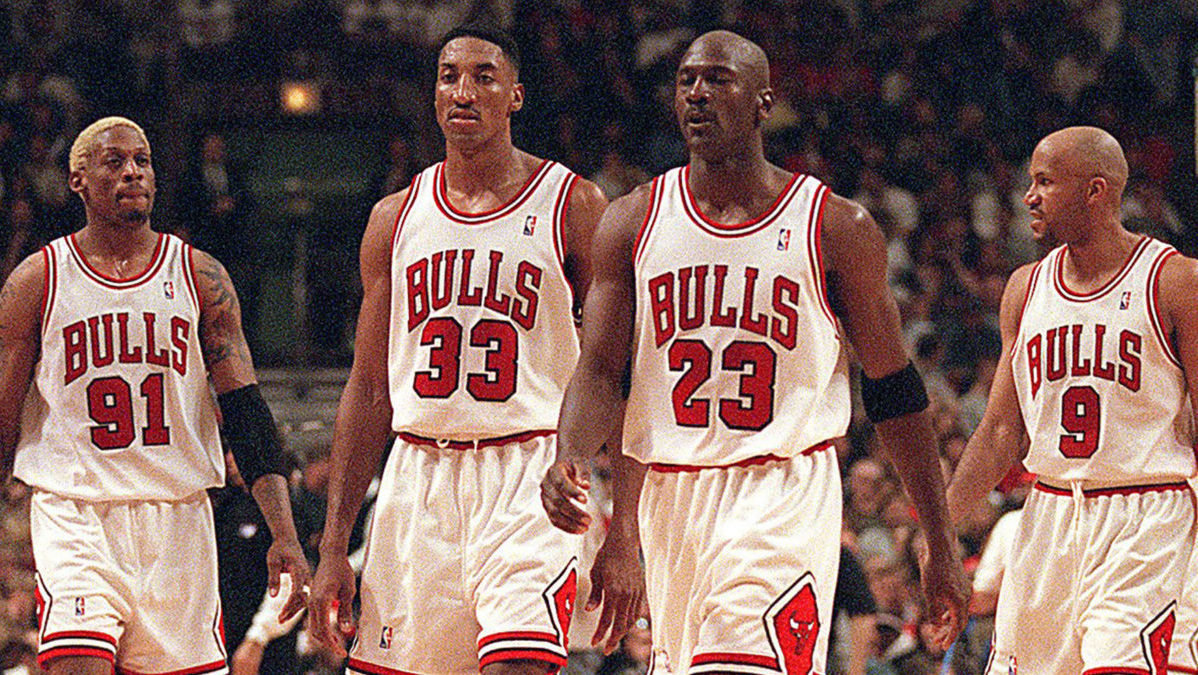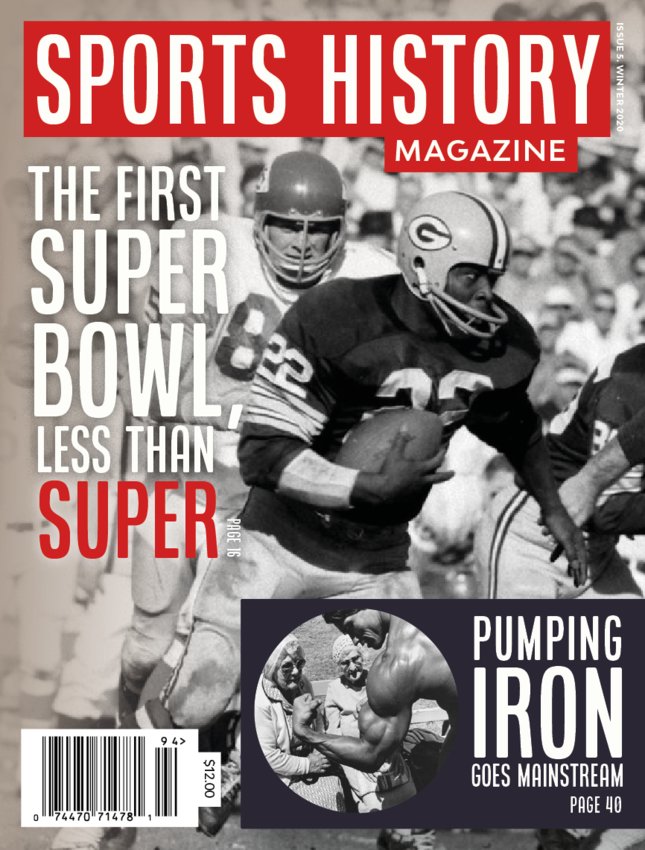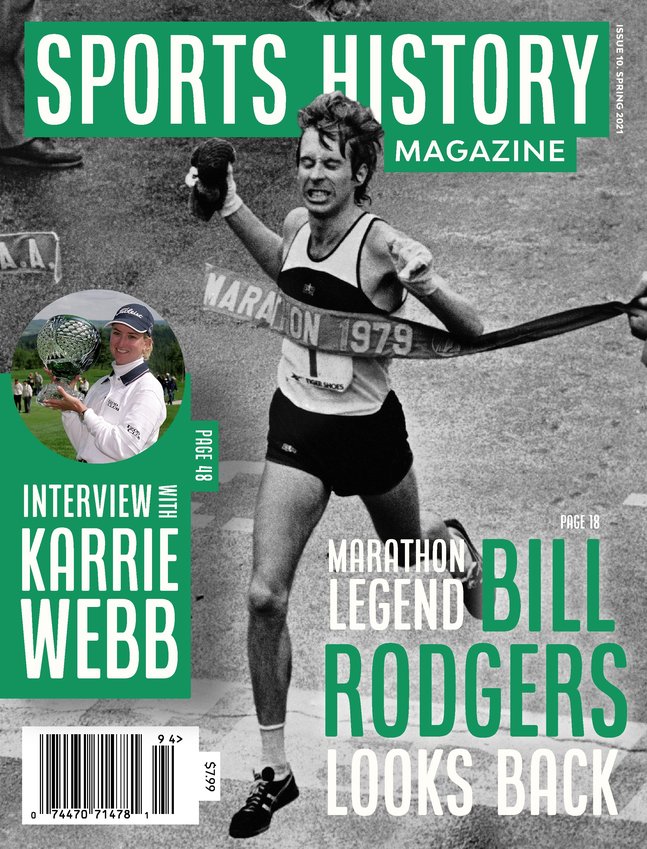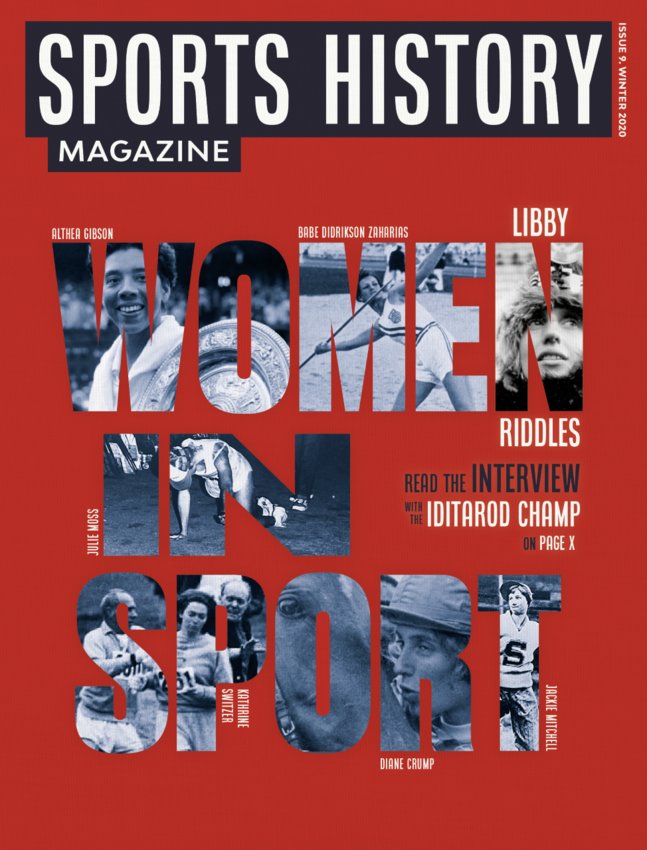"The Last Dance", A Deep Dive Into Michael Jordan & the Bulls
Not many sports teams can fill up ten episodes of a documentary without running out of drama. But the story of the Chicago Bulls’ dynasty of the 1990s, as told by ESPN and Netflix in a co-production series, manages to deliver a 10-course meal to basketball enthusiasts and a few tasty morsels to the casual sports fan. With super star Michael Jordan as the focal point in the series, “The Last Dance” chronicles the Bulls’ lead-up to the 1998 NBA Championship, their 2nd three-peat of the decade, with ‘feel good’ flashbacks, locker room moments, and plenty of game highlights.
Whittled down from over 500 hours of original footages, including never-before-seen clips of the 1997-98 season, we bear witness to Jordan’s unrelenting, push-pull competitive drive to elevate his squad and win games. The film’s unusually long screen time offers a deep dive into one of the most successful basketball teams in NBA history with prominent figures weighing in from all angles. They include coach Phil Jackson, team owner Jerry Reinsdorf, journalist Bob Costas, court rival Isiah Thomas, and even President Barak Obama. While the documentary tilts in favor of Jordan due to his ‘Jump 23’ partnership in the production, “The Last Dance” is as close as ordinary mortals can get to the trials and triumphs of a legacy team and their legendary player.
It’s difficult to fathom the impact that Michael Jordan had on the game of basketball. To date, the Chicago Bulls, a franchise founded in 1966, had never won a conference title, let alone a national championship, without the 6’6” shooting guard from North Carolina. The gravity-defying, slam-dunking basketball phenom joined the Bulls in 1984 and quickly emerged as a league star, entertaining crowds with his superb athleticism and prolific scoring. Gloated by the media and worshipped by fans around the world, Jordan raised the profile of the game itself and almost single-handedly built the brand around the NBA.
Similar to Tiger Woods, Jordan became the face of the sport. But unlike his counterpart on the golf course, the Tar Heels alum had to rely on a team around him to reach championships. “The Last Dance” peels back the exterior of the beloved basketball player to reveal a feared, and even disliked, teammate. While he was certainly respected, his unsympathetic and fiercely competitive nature didn’t always earn him the ‘nice guy’ award. But nice guys didn’t win titles and the Bulls squad understood that very well. They knew that their individual game was elevated by the hard-charging, ambitious sportsman who demanded no less from those around him than he did from himself.
If Jordan saw himself as a towering figure, then there are few people that he admired more than Phil Jackson. Hired in 1987 by the Bulls general manager, Jerry Krause, Jackson came on board first as assistant coach and then moved up as head coach to replace Doug Collins. A former NBA player who won 2 championships with the New York Knicks in 1970 and 1973, Jackson mastered the application of the triangle offense as a coach for Chicago. But he also brought in a unique holistic approach to the game by invoking Native American spiritual practices. Jackson recounts in “The Last Dance” his childhood growing up in a remote part of Montana with parents who were both ministers. His knowledge of the game and calming influence over a disparate group of players with different needs and personalities helped keep the Bulls focused and unified.
Jackson and Krause eventually had a fallout and Jordan confided that he would not play for any other coach on the Bulls team. Jordan had his own problems with Krause when the latter was publicly quoted as saying that “Players and coaches don’t win championships; organizations win championships”. Towards the end of the Bulls’ dynastic run, Jackson’s contract was renewed for only 1 year from 1997-98, which also turned out to be Jordan’s final season with the Bulls. But like most championship teams with talented players, coaches, and managers, the relationships behind the scenes weren’t without tensions and complications.
One sub-story that comes out is Scottie Pippen’s frustration with his pay. In his slow and smooth Arkansas drawl, Pippen is given plenty of air time to vent his frustration with management for not renegotiating his contract to match his production on the scoreboard. Though an undeniable contributor to the Bulls’ efforts, Pippen was essentially stuck with a paltry 7-year, $18 million contract that he originally signed as a form of financial security for himself and his family. On personality issues, nobody stands out more than Dennis Rodman, whose facial rings and barely intelligible words speak of a man with “different needs”, as point guard Steve Kerr put it. Rodman’s 'bad-boy' eccentricities off the court, which started to grab negative media attention, were only tolerated because of his exceptional playing abilities under the net.
After years of refusals to document his basketball career in a miniseries, Jordan finally permitted release of “The Last Dance”. He doesn’t censor clips that expose controversies around his gambling habits, perhaps because they were already made public during his tenure with the Bulls. On air, Jordan denies having a gambling problem and instead says, “I have a competition problem”. In several scenes, the greater-than life hoops star is seen pitching coins with his security staff and playing cards with teammates on road trips. His gambling issues came to a head in 1993 when his father was shot and killed under bizarre circumstances. The tragic episode became ripe with wild conspiracy theories that pinned the murder to gambling debts accumulated by his son on the golf course. Devastated by his father’s death and exhausted from basketball, it was at this point that Jordan decided to take a 2-year leave of the game.
Peppered with insights, anecdotes, and tension-filled clutch moments, “The Last Dance” achieves its goal of telling the inspiring story of a fiery competitor and his dynastic team, with all their human foibles and individual frustrations, dominate a decade of basketball.
Other Reviews Enjoyed: "The 16th Man", From the Baseball Bookshelf










